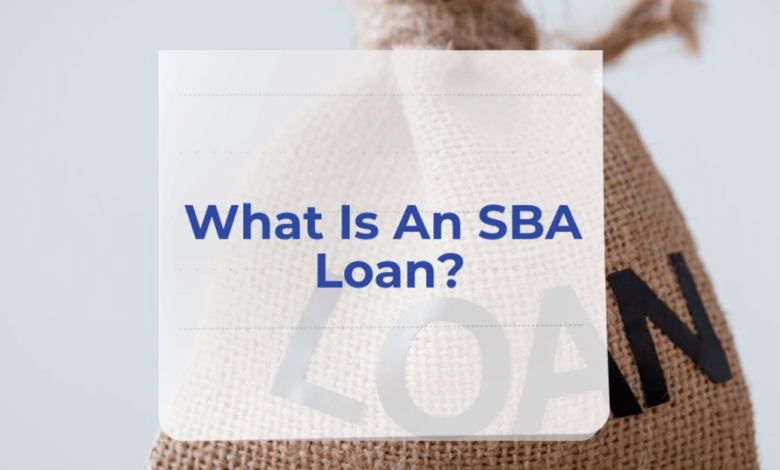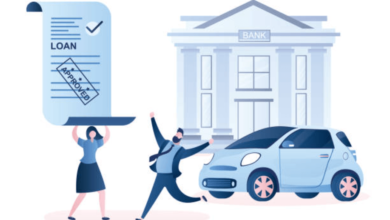
Learn All About What is an SBA Loan?
Are you a small business owner looking for financing options to expand your business or overcome financial hurdles? If so, you may have come across the term “SBA loan.” In this article, we will delve into the details of what is an SBA loan is, how it works, and its benefits for small businesses.
Table of Contents
- Introduction
- What is an SBA Loan?
- Types of SBA Loans
- 3.1 7(a) Loan Program
- 3.2 CDC/504 Loan Program
- 3.3 Microloan Program
- Eligibility Criteria for SBA Loans
- How to Apply for an SBA Loan?
- Advantages of SBA Loans
- SBA Loan Interest Rates and Terms
- SBA Loan FAQs
- 8.1 Can startups qualify for SBA loans?
- 8.2 How long does it take to get approved for an SBA loan?
- 8.3 What can SBA loan funds be used for?
- 8.4 Can I get an SBA loan with bad credit?
- 8.5 What happens if I default on an SBA loan?
- Conclusion
1. Introduction
When traditional financing options may not be easily accessible or viable for small businesses, the Small Business Administration (SBA) provides an alternative solution in the form of SBA loans. These loans are specifically designed to support and promote small businesses by providing them with affordable financing options.
2. What is an SBA Loan?
What is An SBA loan that is a loan program facilitated by the Small Business Administration, a government agency in the United States. The SBA doesn’t directly lend money to small businesses; instead, it acts as a guarantor or facilitator, reducing the risk for lenders. SBA loans are intended to help small businesses obtain funds for various purposes, such as business expansion, working capital, equipment purchase, real estate acquisition, and more.
3. Types of SBA Loans
There are several types of SBA loans available to cater to different business needs. Let’s explore the three main types:
3.1 7(a) Loan Program
The 7(a) Loan Program is the most common and versatile SBA loan option. It provides funds for a wide range of purposes, including working capital, equipment purchase, debt refinancing, and business acquisition. Under this program, the SBA guarantees a portion of the loan, reducing the lender’s risk.
3.2 CDC/504 Loan Program
The CDC/504 Loan Program focuses on long-term fixed assets, such as real estate and equipment. It helps businesses acquire these assets by offering low-interest, fixed-rate loans. The loan structure typically involves a partnership between the business owner, a Certified Development Company (CDC), and a lender.
3.3 Microloan Program
The Microloan Program caters to small businesses and startups in need of small amounts of capital. These loans, ranging from a few thousand dollars to $50,000, can be used for working capital, inventory purchase, equipment, or machinery. The program also provides technical assistance and support to borrowers.
4. Eligibility Criteria for SBA Loans
To qualify for an SBA loan, businesses must meet certain eligibility criteria. While specific requirements may vary depending on the loan program, common factors include being a for-profit business, operating within the United States, having reasonable owner equity, and demonstrating the ability to repay the loan.
5. How to Apply for an Loan?
Applying for a loan involves several steps. Firstly, businesses need to gather the necessary documentation, including financial statements, business plans, and tax returns. Next, they should approach an -approved lender and submit their loan application. The lender will review the application and, if approved, work with the SBA to finalize the loan terms.
6. Advantages of Loans
Loans offer numerous advantages for small businesses, including:
- Lower down payments and collateral requirements
- Longer repayment terms, reducing monthly payment burdens
- Competitive interest rates
- Access to funds for various business purposes
- Technical assistance and support through resource partners
- Opportunities for businesses with limited credit history or low credit scores
7. SBA Loan Interest Rates and Terms
The interest rates and terms for loans can vary depending on the loan program and individual borrower circumstances. However, loans generally have attractive interest rates compared to traditional loans. The repayment terms can range from several years to decades, depending on the loan’s purpose and structure.
8. FAQs
Here are answers to some frequently asked questions about SBA loans:
8.1 Can startups qualify for loans?
Yes, startups can qualify for loans, but they may need to meet specific requirements, such as demonstrating a solid business plan and collateral.
8.2 How long does it take to get approved for an loan?
The approval process for loans can vary, but it typically takes several weeks to a few months. The timeline depends on factors such as the lender’s responsiveness, completeness of documentation, and the complexity of the loan request.
8.3 What can loan funds be used for?
Loan funds can be used for various business purposes, including working capital, equipment purchase, debt refinancing, business acquisition, real estate acquisition, and more.
8.4 Can I get an loan with bad credit?
While a strong credit history is generally preferred, SBA loans offer more flexibility compared to traditional loans. The considers various factors when evaluating loan applications, so it’s possible to qualify for an SBA loan with less-than-perfect credit.
8.5 What happens if I default on an loan?
If a borrower defaults on an loan, the lender may take legal action to recover the outstanding debt. The SBA’s guarantee may cover a portion of the loan, reducing the lender’s financial risk. Read more…
9. Conclusion
what is an SBA loan serve as a valuable resource for small businesses seeking financial assistance. With their flexible terms, competitive interest rates, and support from the Small Business Administration, these loans provide a pathway for growth, expansion, and overcoming financial challenges. Whether you’re a startup or an established small business, exploring loan options can open doors to achieve your business goals.



